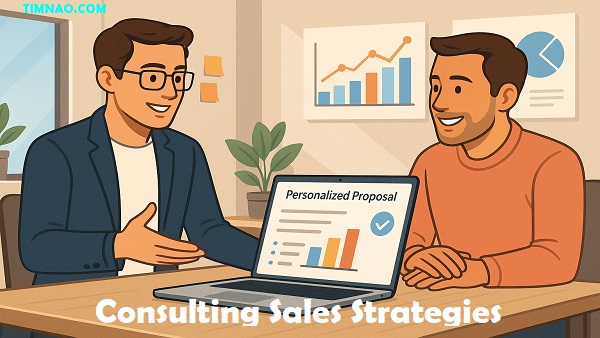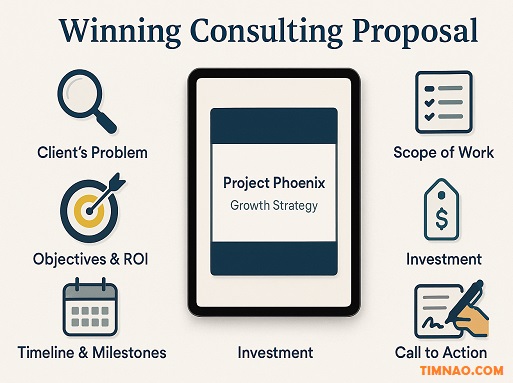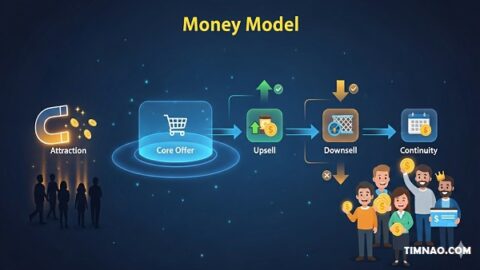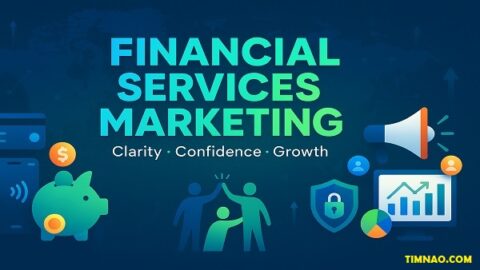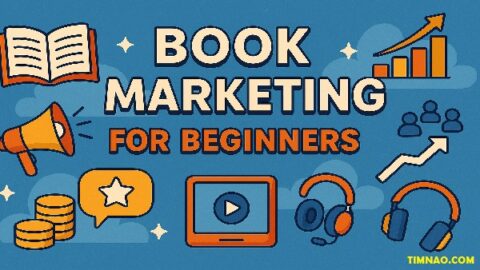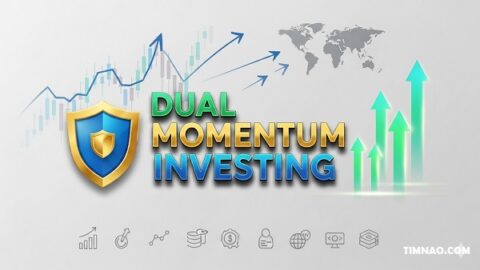Consulting Sales Strategies: The Ultimate Winning Playbook to Become a Successful Consultant 🚀
Mastering effective consulting sales strategies can feel like the biggest hurdle when you want to become a successful consultant. You have valuable knowledge and skills, but turning that expertise into a paying career is a completely different challenge. If you’re feeling lost about where to even begin with learning how to sell consulting services, you’re in the right place.
This guide is designed to transform you from a knowledgeable expert into a confident business owner. We’ll walk you through the entire process, step-by-step, from finding your first client to building a sustainable business. Forget dense theories and confusing jargon. This is a practical, beginner-friendly roadmap filled with actionable tips to help you start your journey and thrive in 2025 and beyond.
📚 Table of Contents
- 🚀 Why Consulting Sales Are Booming in 2025
- 🎯 How to Find Your Perfect Consulting Niche
- 🧱 Building Trust from Day One
- 💼 Crafting Services That Clients Actually Want
- 💸 Pricing Your Expertise Without Underselling Yourself
- 📣 Attracting Clients Through Content That Converts
- 🧲 Networking Tactics That Actually Work
- 🌟 Getting and Using Client Testimonials & Referrals
- 🧑🏫 The Consultative Sales Method Explained Simply
- 🗣️ Handling Sales Conversations with Confidence
- 🤝 Negotiating Like a Pro (Without Being Pushy)
- 📋 Writing Proposals That Win Projects
- 🚫 Overcoming Sales Objections the Smart Way
- ✅ Closing the Deal Without Sounding Desperate
- 🧠 Managing Client Relationships That Last
- 📈 Showcasing Real Results with Case Studies
- 🔁 Adapting to Changing Markets
- 💻 Digital Tools Every Consultant Should Use
- 🌍 Selling to Global Clients: Culture Matters
- 📊 Metrics That Actually Matter in Consulting
- 🎓 Keep Learning: Certifications, Courses & Coaching
- ⚖️ Legal & Ethical Must-Knows for Consultants
- 🌱 Growing a Sustainable, Scalable Consulting Business
1. 🚀 Why Consulting Sales Are Booming in 2025
The world is changing faster than ever. Businesses are facing complex challenges—from rapid digital transformation to new sustainability regulations—and they need experts to guide them. That’s where you come in. Consulting is no longer a luxury; it’s a strategic necessity for companies that want to stay competitive.
This creates a massive opportunity for new consultants. Organizations are actively seeking outside perspectives to help them innovate, solve problems, and improve efficiency. By developing the right consulting sales strategies, you can tap into this growing demand and build a thriving practice from the ground up.
2. 🎯 How to Find Your Perfect Consulting Niche
You can’t be an expert in everything. The key to becoming a successful consultant is to specialize. A well-defined niche makes you the go-to expert for a specific problem or industry, which reduces competition and makes your marketing infinitely easier. Instead of being a general “business consultant,” you could be a “financial consultant for tech startups”.
To find your ideal niche, follow these steps:
- Assess Your Passion & Expertise: What do you genuinely love doing and know a lot about? Your enthusiasm will be contagious to clients.
- Research the Market: Look for industries with growing pains and underserved areas. Tech, healthcare, and sustainable finance are hot areas right now.
- Validate Your Idea: Talk to people in your potential niche. Is there a real demand for the services you want to offer? Are they willing to pay for a solution?
- Test and Refine: Start with a small, focused offering to test the waters. Use feedback from your first few clients to adjust your services and messaging.
3. 🧱 Building Trust from Day One
In consulting, trust is everything. Clients are betting on your ability to deliver results before they’ve even paid you. Building credibility isn’t optional; it’s the foundation of your entire business. You need to prove your value before you even ask for the sale.
Here’s how to build a rock-solid reputation:
- Show, Don’t Just Tell: Create valuable content like articles, case studies, or free webinars that showcase your expertise.
- Gather Social Proof: Collect testimonials and reviews from anyone you’ve helped in the past. A glowing quote from a happy client is your most powerful marketing tool.
- Leverage Certifications: If your field has recognized certifications (like a PMP for project management), get them. They add instant authority.
- Speak and Share: Offer to speak at industry events or host online workshops. This positions you as a thought leader and puts you in direct contact with potential clients.
4. 💼 Crafting Services That Clients Actually Want
Your services shouldn’t be based on what you think clients need; they should be based on what they actually need. The most successful consultants are masters at listening to the market and creating irresistible offers that solve specific, painful problems.
Start by having open conversations with potential clients to understand their problems and expectations. What are their biggest challenges? What are their goals? Use this insight to structure your offerings.
Pro-Tip: Create Service Packages
Instead of just offering hourly work, create tiered packages that group complementary solutions. This simplifies the buying decision for the client and increases the perceived value.
- Package 1 (Starter): A diagnostic or audit.
- Package 2 (Growth): Strategy development and implementation support.
- Package 3 (Premium): Full implementation, training, and ongoing support.
5. 💸 Pricing Your Expertise Without Underselling Yourself
Pricing is one of the scariest parts for new consultants, but it doesn’t have to be. Avoid the trap of simply billing by the hour, as it may not adequately reflect the value you deliver. Instead, a core consulting sales strategy is to focus on value-based pricing, which ties your fee to the value and return on investment (ROI) you deliver to the client.
If you can help a client save $200,000 by optimizing a process, a $20,000 fee suddenly seems very reasonable.
Common Pricing Models:
- Per-Project: A flat fee for a project with a clearly defined scope and outcome. This is ideal for projects with clear objectives.
- Monthly Retainer: A fixed monthly fee for ongoing access to your services over an established period. This model is perfect for building long-term relationships and creating stable, predictable revenue.
- Results-Based: A model where part of your fee is tied to achieving specific, measurable results. This can be very attractive to clients as it reduces their perceived risk.
6. 📣 Attracting Clients Through Content That Converts
Content marketing is your 24/7 salesperson. It allows you to attract, educate, and build trust with potential clients without ever sending a cold email. By consistently sharing your expertise, you position yourself as a helpful authority, so when a prospect is ready to hire a consultant, you’re the first person they think of.
Effective Content Types for Consultants:
- Blog Posts & Articles: Write about your audience’s most common questions and problems to improve your SEO and help customers find you.
- E-books & Guides: Create in-depth resources that prospects can download in exchange for their email address. This is a fantastic way to generate leads.
- Video Content: Create explainer videos or webinars to discuss complex topics in an accessible way. Videos are highly engaging.
- Case Studies: Detail how you helped a previous client achieve specific results. This is powerful social proof of your effectiveness.
7. 🧲 Networking Tactics That Actually Work
Forget awkwardly handing out business cards at stuffy events. Modern networking is about building genuine relationships and offering value first. The goal isn’t to collect contacts; it’s to create meaningful connections that lead to mutual benefits and opportunities.
Focus on quality over quantity with these tips:
- Be a Giver, Not a Taker: Before asking for anything, think about what you can offer. Can you share a useful resource, make a valuable introduction, or offer a piece of advice?
- Listen More Than You Talk: Show genuine interest in others by listening to their stories and challenges. People remember those who listen.
- Engage Online: Don’t just be a lurker on LinkedIn. Participate in discussions, comment thoughtfully on posts from industry leaders, and share your own relevant content.
- Follow Up: A single meeting is just the start. Send a follow-up message referencing your conversation and stay in touch regularly.
8. 🌟 Getting and Using Client Testimonials & Referrals
Referrals are one of the most effective ways to generate new business. A client who comes to you through a recommendation is already pre-qualified and has a level of trust, leading to higher conversion rates. A satisfied client is your most effective marketing asset.
However, you can’t just sit back and hope for referrals. You need a strategy.
- Deliver Exceptional Service: This is non-negotiable. A happy client is naturally more likely to speak positively about their experience.
- Just Ask! The best time to ask for a referral is right after a project’s success or when a client expresses their satisfaction. Make it easy for them.
- Create a Simple Referral Program: Offer a reward, like a bonus or a discount on future services, for any referral that becomes a client.
9. 🧑🏫 The Consultative Sales Method Explained Simply
Forget the aggressive, hard-sell tactics of the past. Consultative selling is about acting more like a trusted advisor than a traditional salesperson. Your job is to listen deeply, diagnose problems, and collaboratively design a solution that truly helps the client and promotes their long-term success.
This approach is built on a simple, five-step process:
- Research & Prepare: Before any meeting, do your homework. Understand the client’s company, industry, and competition.
- Ask & Listen: During the conversation, practice active listening to understand their real challenges and goals. Let them do most of the talking.
- Diagnose the Problem: Use the information you’ve gathered to identify the root cause of their problem.
- Prescribe a Customized Solution: Offer solutions that are directly aligned with their needs and personalize your proposal.
- Collaborate to Close: Work together with the client to adjust and refine the proposed solution until it perfectly meets their needs.
10. 🗣️ Handling Sales Conversations with Confidence
The sales conversation, or “discovery call,” is where the magic happens. It’s your chance to build rapport, understand the client’s needs, and determine if you’re a good fit for each other. Your goal isn’t to “sell,” but to see if you can genuinely help. This is a core part of learning how to sell consulting services effectively.
To lead a confident discovery call:
- Set an Agenda: Start the call by outlining what you’ll cover. This shows professionalism and keeps the conversation on track.
- Focus on Their “Pain”: Dig deep to understand the business consequences of their problem. What does this challenge cost them?
- Qualify the Opportunity: Make sure the client has a realistic budget and a timeline for making a decision.
- Define the Next Step: Never end a call without a clear next step, like sending a proposal or scheduling a follow-up.
11. 🤝 Negotiating Like a Pro (Without Being Pushy)
Negotiation isn’t about winning or losing; it’s about finding a win-win agreement that makes both you and the client feel good. A successful negotiation sets the stage for a positive, long-term partnership built on mutual respect and trust.
Key Negotiation Strategies:
- Anchor Your Value, Not Just Your Price: Continuously tie the conversation back to the value and ROI of your solution. Reinforce how you can solve their problems.
- Be Flexible on Terms, Firm on Value: You can be flexible on things like payment schedules, but be firm on the points crucial to the quality of your work.
- Anticipate Objections: Prepare for common objections around costs or scope and have thoughtful responses ready.
- Know Your Walk-Away Point: Understand your own limits and goals before you start negotiating.
12. 📋 Writing Proposals That Win Projects
A proposal is your final sales pitch on paper. It should do more than just list services and prices; it must tell a compelling story. It needs to clearly articulate that you understand the client’s problem, present a clear solution, and prove that you are the best person for the job.
Figure: Anatomy of a Winning Consulting Proposal
Use a modern proposal tool like PandaDoc or Better Proposals. Every winning proposal must include:
- Understanding of the Problem: Start by summarizing their challenges, showing you have a deep understanding of their needs.
- Proposed Solution & Objectives: Clearly outline your plan and what you will achieve. Set specific, measurable, and time-bound goals.
- Scope of Work: Detail exactly what you will do and why it is the best solution for the customer.
- Timeline & Milestones: Include a realistic timeline showing key phases and project milestones.
- Investment: Present your pricing clearly and transparently to build trust.
- Call to Action: End with a clear next step, like encouraging the client to contact you to discuss the proposal further.
13. 🚫 Overcoming Sales Objections the Smart Way
An objection isn’t a “no.” It’s a request for more information or an expression of concern. When a client raises an objection, it’s an opportunity to better understand their needs and reaffirm the value of your services. The key is to listen, understand the real issue, and respond with empathy and confidence.
How to handle common objections:
- “It’s too expensive.”
Response: “I understand budget is a key consideration. Can we revisit the ROI the customer can expect? A $20k investment to solve a $200k problem often makes good financial sense. Alternatively, we could explore a phased approach to fit your current budget.” - “Now is not the right time.”
Response: “That’s fair. Can I ask what’s driving the timing? Sometimes, delaying a solution can be more costly due to missed opportunities or worsening market conditions.” - “I’m not sure you can deliver the results.”
Response: “That’s a valid concern. This is why I shared case studies from previous clients who had similar challenges. We can also offer certain reassurances or guarantees to reduce the perceived risk.”
14. ✅ Closing the Deal Without Sounding Desperate
“Closing” sounds intimidating, but it’s just the natural end to a successful conversation. If you’ve addressed all objections and clearly demonstrated your value, closing becomes a simple, logical next step. You just need to be able to read the signals and ask for the business.
Effective (and non-pushy) closing techniques:
- The Direct Close: After addressing all concerns, ask a direct question like, “Can we start on the project next Monday?”
- The Summary Close: Recap all the benefits and values your consultancy offers and then ask if the client is ready to proceed.
- The Alternative Close: Give the customer two options that both lead to a close, such as choosing between two different service packages.
- The Conditional Close: Use this to handle one final hesitation. “If I can adjust the schedule as you need, are you ready to start this project with us?”
15. 🧠 Managing Client Relationships That Last
Winning the first project is just the beginning. The real profit in consulting comes from repeat business and long-term relationships. A loyal client who trusts you is far more valuable than constantly chasing new leads.
To build relationships that last:
- Communicate Proactively: Maintain open lines of communication with regular updates on project progress.
- Anticipate Their Needs: Be proactive by suggesting solutions for future needs before they become urgent problems.
- Go the Extra Mile: Consider offering value-added services like training sessions or periodic performance reviews.
- Ask for Feedback: Actively encourage clients to share their impressions of your work.
16. 📈 Showcasing Real Results with Case Studies
A case study is a story that proves your worth. It transforms your abstract services into tangible, real-world results that new prospects can relate to. It’s the ultimate form of social proof, showing potential clients that you deliver real, measurable value.
A great case study follows a simple structure:
- The Client & The Problem: Introduce the client and describe the challenge they were facing before they hired you.
- The Solution: Explain the specific strategy and process you used to tackle their problem.
- The Results: Highlight the concrete, quantifiable outcomes and how they benefited the client. Use numbers and percentages.
- The Testimonial: End with a powerful quote from the happy client to add a layer of authenticity.
17. 🔁 Adapting to Changing Markets
The business world is in constant flux. The strategies that work today might be obsolete tomorrow. Successful consultants are agile learners who can adapt to new trends, technologies, and client needs. Staying relevant is a continuous process.
To stay ahead of the curve:
- Be a Lifelong Learner: Invest in your own education by attending courses, workshops, and seminars on the latest industry trends.
- Listen to Your Clients: Their changing needs and regular feedback can provide valuable insights into how to tailor your services.
- Embrace New Technology: Adopt new digital tools that can improve the efficiency and effectiveness of your services.
- Form Strategic Alliances: Partner with other companies or consultants to gain new insights and expand your market reach.
18. 💻 Digital Tools Every Consultant Should Use
In 2025, running a consulting business without the right digital tools is inefficient. Technology can automate your processes, improve your client experience, and make you far more effective.
Here is a starter toolkit for any new consultant:
- CRM (Customer Relationship Management): HubSpot CRM or similar systems help manage interactions with clients and track leads.
- Project Management: Asana, Trello, or Notion are fantastic for planning, organizing, and tracking projects efficiently.
- Proposal Software: PandaDoc or Better Proposals help you create professional proposals that clients can sign digitally.
- Communication: Slack or Microsoft Teams enable real-time communication and collaboration.
- Scheduling: Calendly automates your scheduling, eliminating back-and-forth emails.
19. 🌍 Selling to Global Clients: Culture Matters
As the world becomes more connected, you may find opportunities with international clients. However, a core part of your consulting sales strategies must be cultural sensitivity. An approach that works in your home country might not work elsewhere.
Key considerations for international sales:
- Communication Styles: Some cultures are very direct, while others prefer to build a personal relationship first. Research the business etiquette of your target country.
- Negotiation Norms: Be prepared to adapt your negotiation style. Some cultures value long-term relationships and detailed discussions before closing a deal.
- Time Zones & Language: Be flexible with meeting times and consider using a professional translator if there’s a significant language barrier.
- Local Laws: Be aware of and comply with local and international laws, including trade regulations and data privacy standards like the GDPR in Europe.
20. 📊 Metrics That Actually Matter in Consulting
You can’t improve what you don’t measure. Tracking a few key metrics will tell you what’s working in your sales process and what needs fixing. This gives you a clear pulse on the health of your business.
Focus on these essential metrics:
- Conversion Rate: The percentage of potential customers who become paying customers.
- Average Contract Value: The average value of your signed contracts.
- Sales Cycle Length: The average time needed to close a deal from the first contact.
- Client Retention Rate: The number of clients who continue to do business with you.
21. 🎓 Keep Learning: Certifications, Courses & Coaching
Your expertise is your most valuable asset, and you must invest in it continuously. The moment you stop learning is the moment you start falling behind. A commitment to ongoing professional development is what separates good consultants from those who become a successful consultant for the long term.
Ways to invest in your growth:
- Online Courses & Formal Training: Platforms like Coursera and LinkedIn Learning offer thousands of courses. Invest in workshops relevant to your specialization.
- Professional Certifications: Obtaining industry-recognized certifications can enhance your skills and strengthen your credibility.
- Mentoring & Coaching: Participating in mentoring programs is an excellent way to exchange knowledge and learn from others.
- Read Voraciously: Dedicate time to reading books and articles to foster new ideas.
22. ⚖️ Legal & Ethical Must-Knows for Consultants
Operating with integrity is non-negotiable. A strong ethical foundation and a clear understanding of your legal obligations will protect you, build trust with clients, and ensure the long-term health of your business.
Every consultant must have these in place:
- A Solid Contract: Never start work without a signed contract. It should be formalized, clear, and comprehensive.
- Business Insurance: Look into Professional Liability Insurance to protect you in case a client claims your work caused them financial harm.
- Confidentiality and Privacy: Strictly protect all confidential client information and comply with data privacy regulations.
- Honesty & Transparency: Act with integrity in all interactions. Be honest about what you can and cannot do.
23. 🌱 Growing a Sustainable, Scalable Consulting Business
Once you’ve mastered the art of selling and delivering, it’s time to think about growth. Sustainable growth isn’t just about making more money; it’s about building a resilient business that can thrive for years to come without burning you out.
Strategies for smart, sustainable growth:
- Expand Your Services: Based on client feedback, identify complementary services you can offer.
- Form Strategic Partnerships: Collaborate with other consultants who offer complementary skills or services.
- Consider a ‘Consulting as a Service’ (CaaS) Model: Offer your expertise through a subscription model for predictable revenue.
- Build a Personal Brand: Continue to invest in your brand through content and networking to attract better opportunities.
Your Journey Starts Now
You’ve just completed a comprehensive tour of the essential consulting sales strategies needed to build a successful career. It might seem like a lot, but remember that every successful consultant started exactly where you are now—with expertise and a desire to help. The key is to take the first step.
Don’t wait for the perfect moment. Pick one thing from this guide—defining your niche, writing your first blog post, or reaching out to one person in your network—and do it today. The path to becoming a successful consultant is built one small, confident action at a time. You have the knowledge. Now go turn it into profit.

